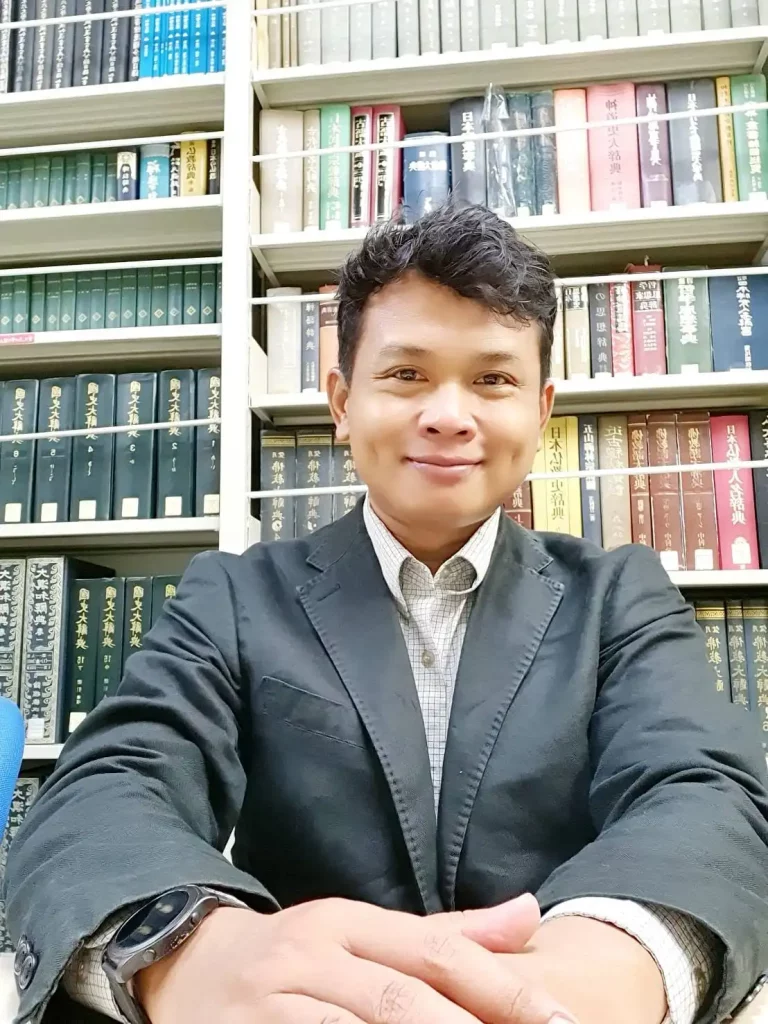UNAIR NEWS – Universitas Airlangga (UNAIR) continues to encourage its academic community to conduct research activities. One of the lecturers from the Japanese Studies Program UNAIR Faculty of Humanities (FIB), Antonious R. Pujo P. PhD, won research grants for four of his research titles.
Based on an interview with UNAIR NEWS on Sunday, April 2, 2023, Antonius said he had received research grants from three institutions successfully. They are South Asia, Southeast Asia, and Taiwanese Universities Joint Research Scheme (SATU JRS), Korea’s National Research Foundation (NRF), and the Sumitomo Foundation.
SATU JRS
SATU JRS or South Asia, Southeast Asia, and Taiwanese Universities Joint Research Scheme is a grant given directly by UNAIR. Antonius won a joint research scheme with researchers from Universiti Malaya, Malaysia and De La Salle University, Philippines.
The grant selection stages include submitting research proposals and seeking research partners from the SATU JRS consortium. Then, selection by the SATU JRS committee to get funding from UNAIR.
In that research scheme, Antonious proposed a title: “(UNAIR 37) Problems and Strategies of Indonesian and Filipino Migrant Workers in Japan in Dealing with the Cultural Clashes,” and “(DLSU 02) Experiences of Indonesian and Filipino Migrant Workers in Japan”. He raised the welfare issue of migrant workers in Japan and their ability to adapt to a new culture.
The two studies aim to map the various problems of caregivers in Indonesia and the Philippines. These two countries are fellow Southeast Asian nations with similar cultural backgrounds working in Japan.
“This research aims to analyze how they find a way out of these difficulties to survive in a country with a different culture from theirs. The results of this research can be used as a reference for related governments and for people in the two countries who wish to have a career in Japan,” said the Japanese Studies lecturer.
National Research Foundation (NRF) of Korea
As the name implies, this research grant comes from the South Korean government. Antonius won a joint research scheme with researchers from Korea University, South Korea.
The selection stage for this grant consists of sending research proposals to research teams from Korea University. Then, the results of the selection from the NRF Korea Selection Committee were announced.
In that program, Antonious proposed a research title: A Study on Bilingual Literature in Indonesia During Japanese Occupation: Focused on Comparison with Japanese “Nanyo” Literature and Korean Bilingual Literature.
The main issue of this research is to discuss the similarities and differences in Japanese propaganda methods during the colonial period in Korea and Indonesia. Also, the impacts that arise from each country, especially in media and literature.
According to him, this is very interesting to study if we want to know the similarities and differences in Japanese literature written in two languages, namely Japanese and local languages (Indonesian and Korean). Also, to find out the impact on the development of Japanese and local literature in both countries (Indonesia and Korea), especially during the Japanese colonial period.
Sumitomo Foundation
Many are already familiar with this research funding institution from Japan. Even though the selection process was not much different from NRF Korea, the research scheme Antonious accepted differed from before because he had to do the research individually this time.
He raised the main issue on how cooperation was established between Japanese and Indonesian scholars, especially in the publication of Djawa Baroe propaganda magazine in 1943-1945 in his research entitled The Role of Japanese and Indonesian Intellectuals in Promoting Mutual Understanding Between Indonesian and Japanese People Through the Publication of Magazine Djawa Baroe in 1943-1945.
The research was to learn more about the role of Japanese and Indonesian intellectuals involved in propaganda media in Indonesia, especially in the publication of the Djawa Baroe magazine during the Japanese occupation in Indonesia.
Antonious also revealed the reasons for all the topics he proposed. “The research theme that I propose is very interesting, and I also want to know a problem from various perspectives, especially from other countries that have the same experience with a problem, “he said.
Previously, Antonious admitted that he had experienced difficulties in managing time for discussions with fellow researchers because the members were busy and had difficulty finding original manuscript references in Indonesia. Therefore, he has to go to Japan or other countries with digital collections of research materials.
He faced all these challenges and won research grants. He admitted that he is very happy and proud of the honor he has earned.
“I am happy and proud to gain the trust of grant funders and am excited to be able to collaborate with other researchers abroad,” he said.
He also hopes that in the future, he will be able to produce new findings that can be published in scientific journals of national and international reputation and benefit many people. (*)
Author: Aidatul Fitriyah
Editor: Binti Q Masruroh









